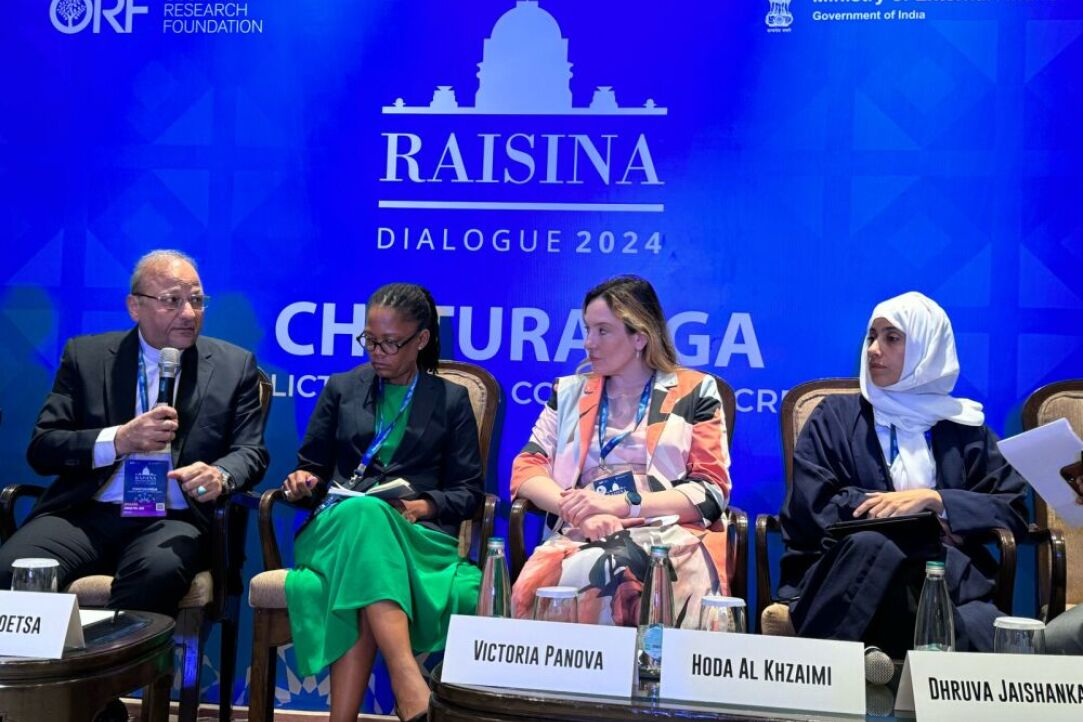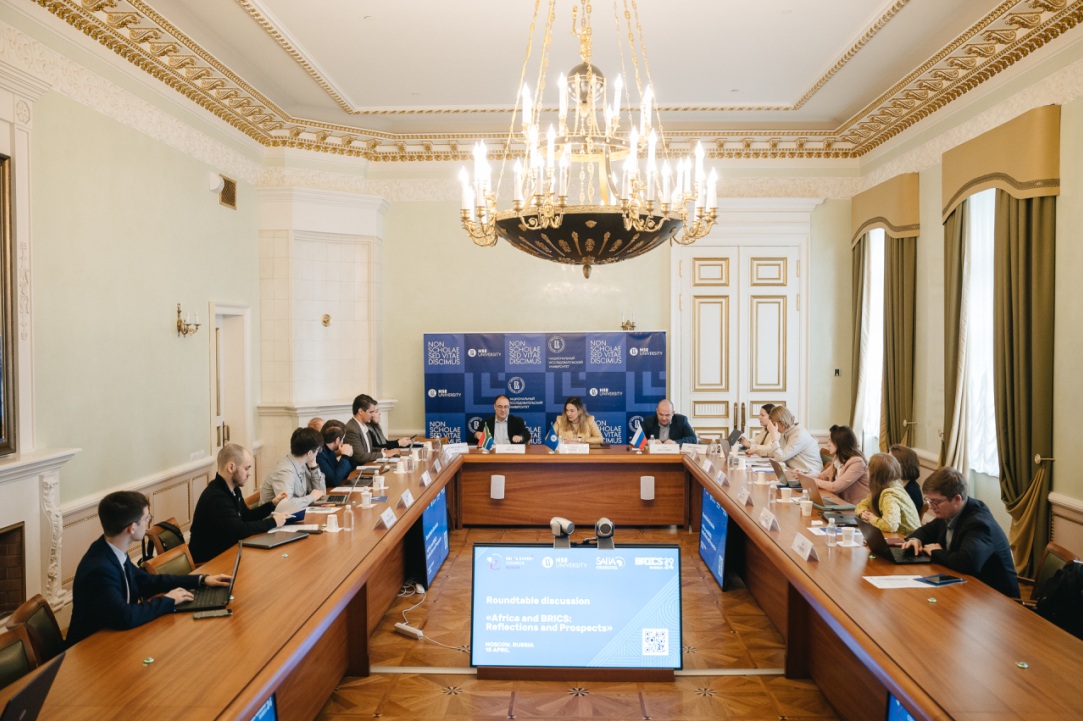
HSE ‘Mirror Laboratories’ Project Marks Five Years since Start
‘Mirror Laboratories’ is one of the flagship programmes of the HSE University aimed at developing domestic scientific partnerships. During the implementation of the project, 41 research projects were initiated in partnership with 30 regional universities and scientific organisations. A series of round tables timed to coincide with the fifth anniversary of the ‘Mirror Laboratories’ project, were held at the HSE University on April 24–25, 2024.

'Our Сentre is a Major Multidisciplinary Project'
Meeting in April, the HSE Academic Council discussed the results achieved by the Human Capital Multidisciplinary Research Centre in 2020-2023 and its plans for the future. Lilia Ovcharova, HSE Vice Rector and initiator of the Human Capital Multidisciplinary Research Centre, presented an overview of the progress made, stating, in particular, that 25 subdivisions of HSE University are involved in the Centre's work and more than two thousand early-career researchers and students have been trained at the Centre. Rospatent (the Russian Federal Service for Intellectual Property Rights) has registered 22 intellectual property objects (IP objects) produced in the framework of the Centre's operation, and 28 educational products have been prepared by the Centre.

Russian Chemists Develop Luminous Pseudosandwich Composed of Rare Earth Metals
A team of Russian researchers has successfully synthesised a new class of complex compounds of rare earth elements. Unlike other lanthanide compounds, the resulting substances are highly soluble in most organic solvents. These novel compounds can find application in organic and organometallic synthesis, as well as in the production of new luminescent materials. The study has been published in Inorganic Chemistry.

Commitment to a Healthy Lifestyle Varies across Russian Regions
Economists at HSE University have assessed the impact of smoking, alcohol consumption and sports participation on life expectancy in Russia. These factors were found to vary significantly across regions; therefore, efforts to promote healthy lifestyles in each region should take into account local characteristics. The paper has been published in Public Health.

HSE Strengthens Cooperation with India and Creates Opportunities for Dialogue between Experts
Following the visit of the HSE University delegation to New Delhi, cooperation agreements with leading Indian universities were finalised. Similarly, a number of expert events, consultations and negotiations on the development of comprehensive strategic cooperation with Bharat took place. The HSE University delegation also participated in the Raisina Dialogue, one of the largest international expert forums.
.jpg)
Artificial Intelligence Tested by Kant Philosophy
The Baltic Federal University (Kaliningrad) recently hosted an International Congress entitled ‘The World Concept of Philosophy’ in honour of the 300th anniversary of the birth of the philosopher and thinker Immanuel Kant. The event brought together about 500 scientists and experts from 23 countries. HSE Rector Nikita Anisimov took part in the opening plenary session of the congress titled ‘Critique of Artificial Intelligence: Being and Cognition in the Context of Artificial Intelligence Development.’

Immortal Cells and Mathematics Reveal Mechanism behind Coronavirus Infection
A mathematical model has helped describe the course of infection caused by two variants of coronavirus: Omicron and Delta, and explain the differences between them. It appears that the cell entry rate is lower for Omicron, allowing infected cells ample time to alert neighbouring cells of the threat and trigger the activation of their innate immune response. In the future, the developed model could be employed to investigate any other variant of COVID-19, potentially leading to effective strategies for combating new hazardous strains, such as Pirola and JN.1. The findings from the study conducted with the participation of HSE researchers have been published in PeerJ.

HSE Hosts Round Table ‘Africa and BRICS: Reflections and Prospects’
On April 15, 2024 HSE University hosted a roundtable discussion ‘Africa and BRICS: Reflections and Prospects.’ The event featured leading experts from the South African Institute of International Affairs (SAIIA) Steven Gruzd and Gustavo de Carvalho and was moderated by HSE Vice Rector and Head of the BRICS Expert Council–Russia Victoria Panova.

Workaholism Helps Young Narcissists Boost New Venture Performance
An international team of researchers including Professor Galina Shirokova, Director of the Strategic Entrepreneurship Centre at HSE University in St Petersburg, and her students Nailya Galieva and Diana Doktorova, examined the impact of narcissism on young entrepreneurs' success. The authors have demonstrated that a company founder's workaholism can amplify the influence of narcissism on a new venture's performance.

Expedition to the Himalayas: What To Expect
At the end of April, six students of HSE University-St Petersburg will go on an expedition to the Himalayas, jointly organised with the University of Delhi. They will be collecting data about the anthropogenic impact on the ecosystem of this region, as well as its natural resources and environmental sustainability.


Deadline for application - March 17, 2024